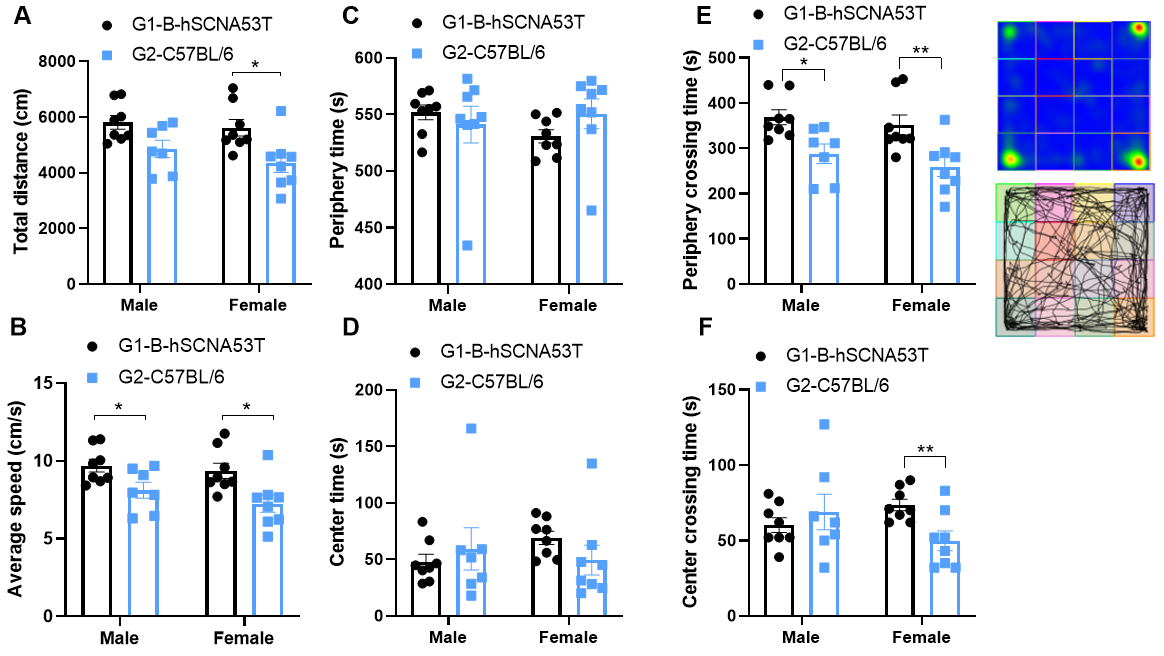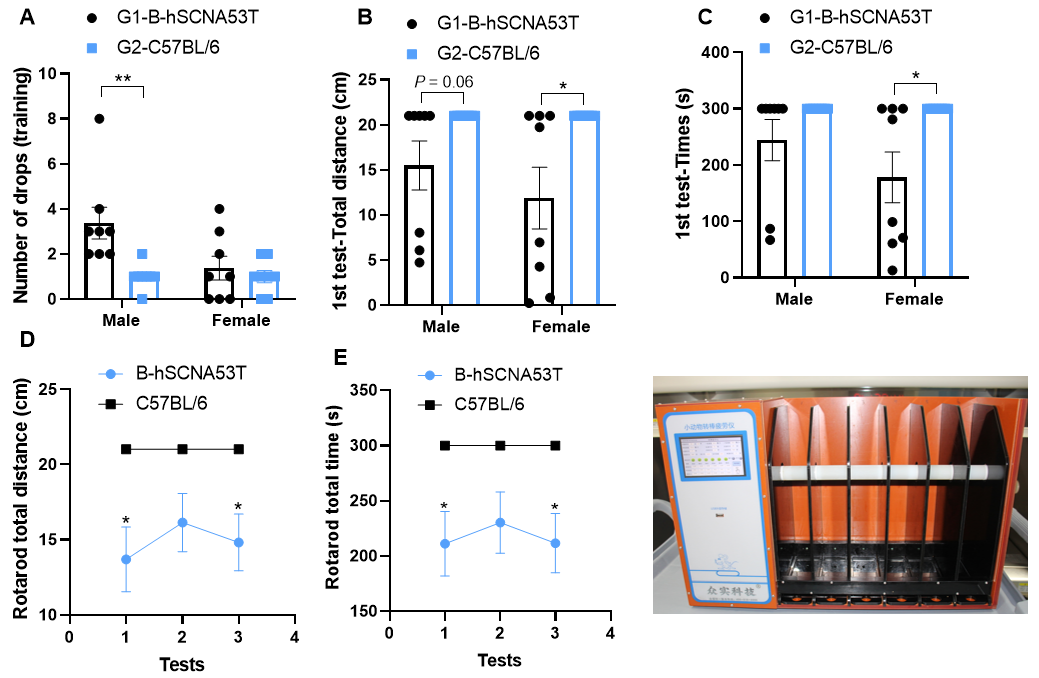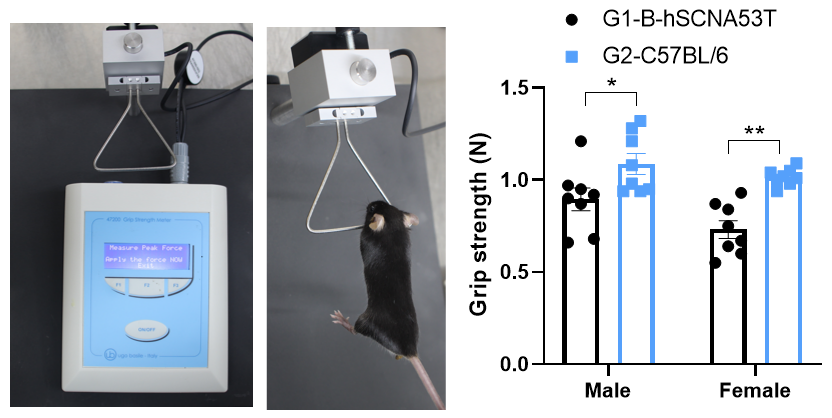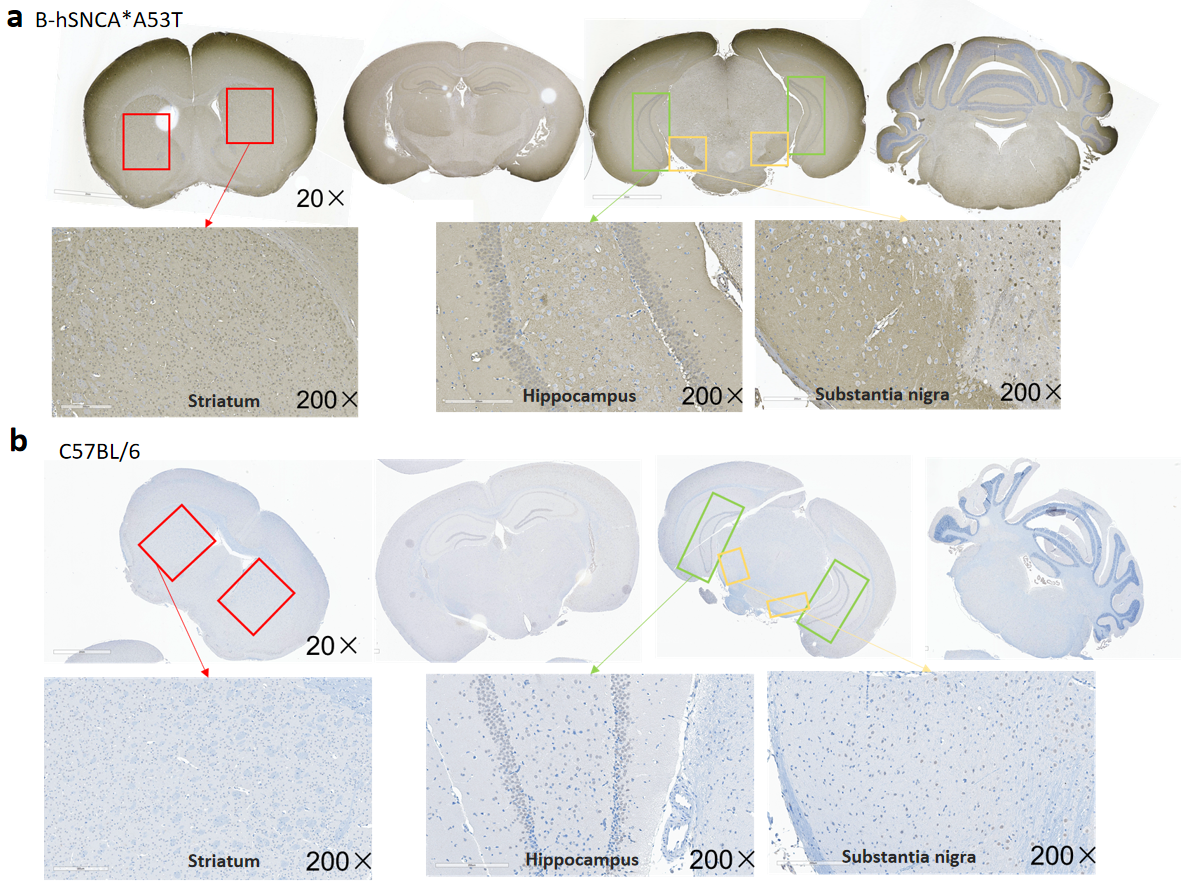

Biocytogen has constructed a mouse with an A53T mutant SNCA gene, a B-CAG hSNCA*A53T mice, for preclinical Parkinson's disease research.
on this page
Parkinson's disease(PD) is the most common serious movement disorder in the world, affecting about 1% of adults over the age of 60. The main pathological change of PD is the progressive loss of dopaminergic neurons in the substantia nigra dense region accompanied by a decrease in striatal dopamine levels, but the specific pathogenesis of PD is not clear. The pathogenesis of PD and the relationship between various targets are still a hot topic in current research, so the preparation of mouse models plays a pivotal role in the study of PD in basic research. The Alpha-Synuclein Gene (SNCA) is the first gene to be found to be associated with familial PD, and its encoding α-syn is a soluble protein expressed in the central nervous system presynaptic and perinuclear and is also a major component of Lewy bodies in neurons of PD patients. Genome-wide association analysis showed that SNCA was closely related to the pathogenesis of PD, and the high expression of SNCA gene was an important pathological marker of PD. Point mutations in SNCA genes, such as A53T, A30P, E46K, G51D and H50Q, are closely related to the occurrence of PD, and A53T mutations lead to the formation of more amyloid fibrils in α-syn. Biocytogen has constructed a mouse with an A53T mutant SNCA gene, a B-CAG hSNCA*A53T mice, for preclinical Parkinson's disease research.
Modeling design

| Group | Animal | Number of animals | Age | Open field | EPM | Rotarod Tests | Grip strength |
| G1 | B-hSCNA53T; Male | 8 | 6 weeks | Day 1 Free explore for 10 min |
Day 2 Free explore for 10 min |
Day 2-5 15 rpm/min |
Day 6 |
| G2 | B-hSCNA53T; Female | 8 | 6 weeks | ||||
| G3 | C57BL/6; Male | 8 | 6 weeks | ||||
| G4 | C57BL/6 Female | 8 | 6 weeks |
Open field test (OF)

Figure1. Hyperactivity in open field test. B-hSCNA53T mice travel more distanceand show higher velocity.
Rotarod test

Figure2. Total distance and times of B-hSCNA53T mice on rotarod was lower than that of WT mice.
Grip strength

Figure3. Grip strength of of B-hSCNA53T mice was lower than that of WT mice.
Elevated Plus Maze (EPM)

Figure4. No difference was observed on EPM between B-hSCNA53T and WT mice.

Expression, localization of human a-synuclein (haSyn) in central nervous system (CNS). (A) B-hSNCA*A53T mice. (B) C57BL/6 mice. Red box: Striatum; Green box: Hippocampus; Yellow box:Substantial nigra